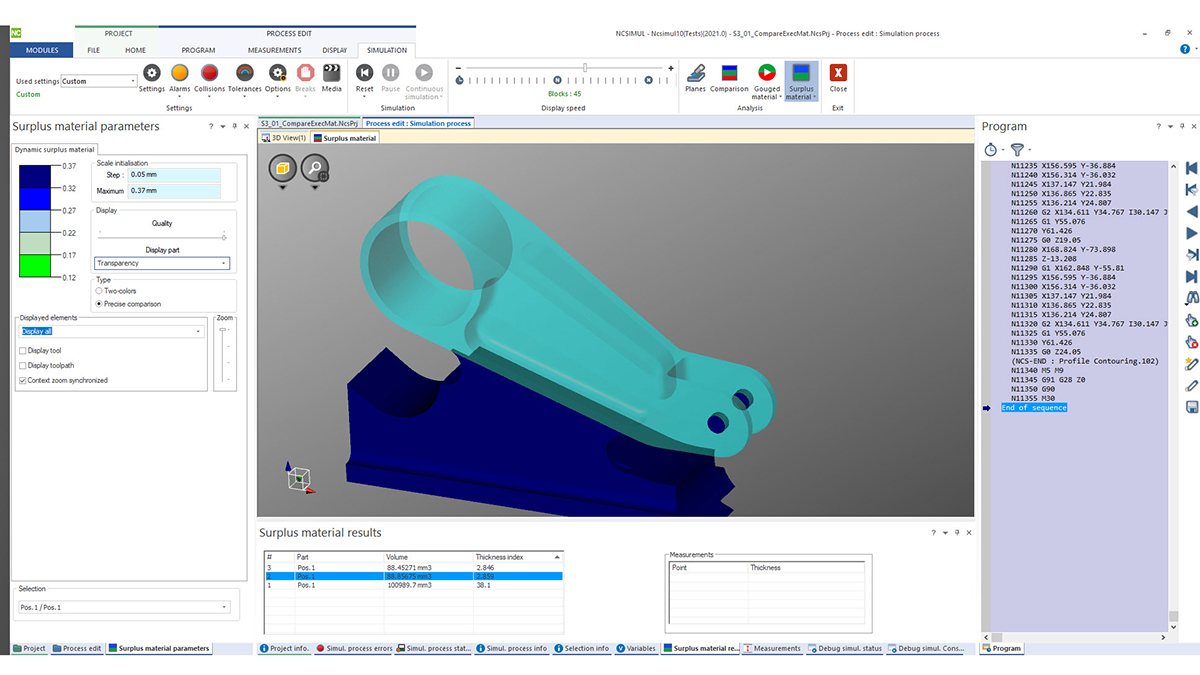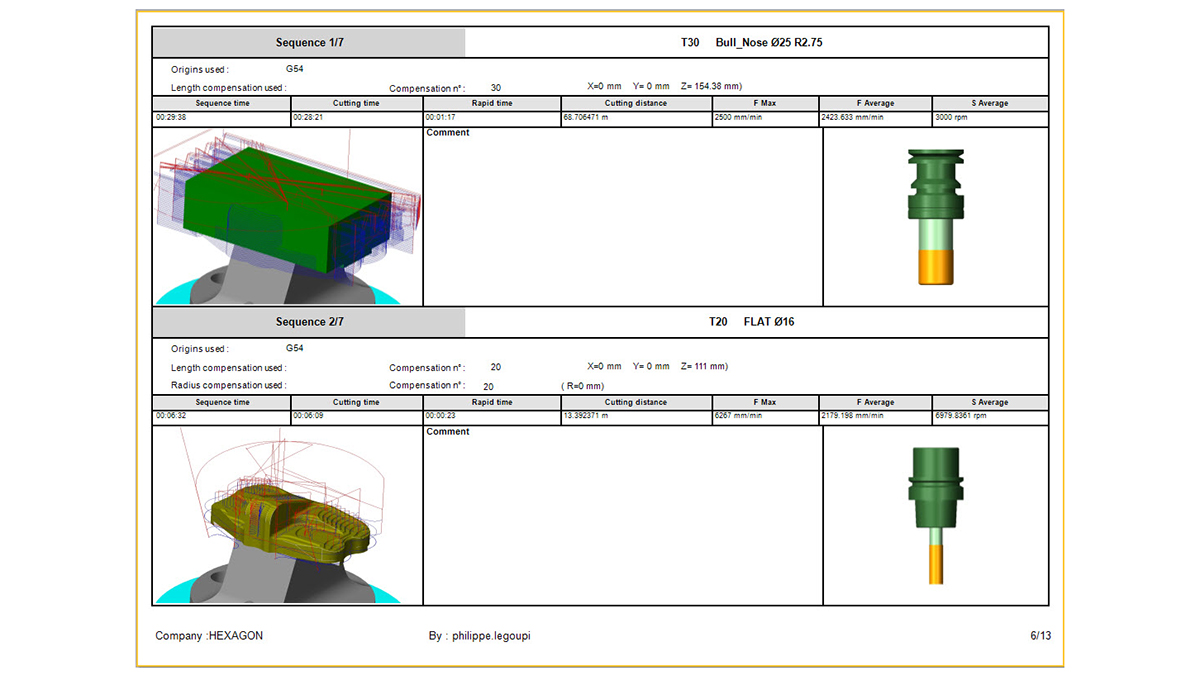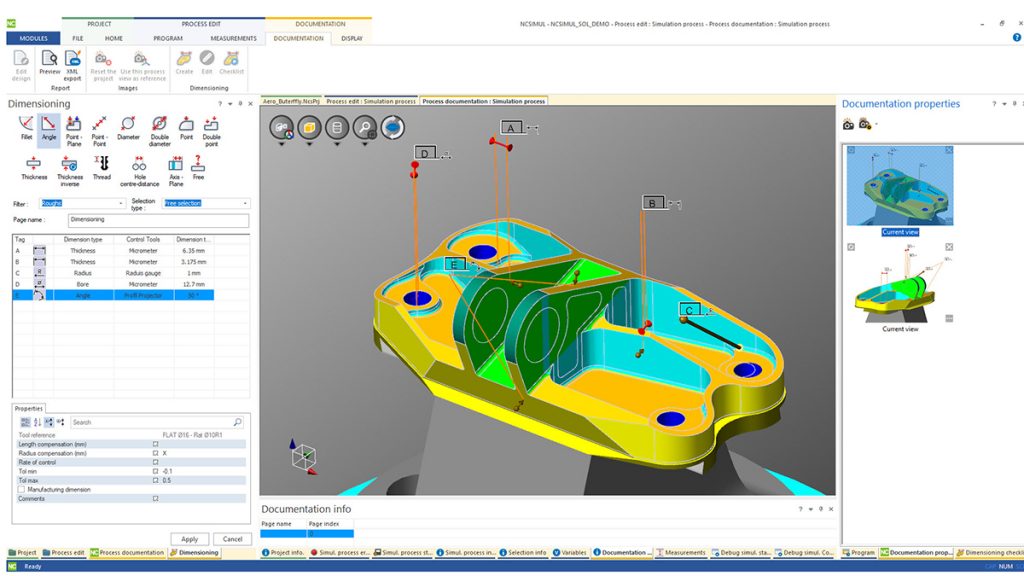An array of new and enhanced functionality from Hexagon has been added to NCSIMUL as it looks to put the latest digital twin software at the forefront of Industry 4.0 Smart Factory technology
At its heart is increasing CNC program quality through automatic and predictive analysis, with NCSIMUL virtually building the real-life machining environment to avoid errors, decrease set-up times and switch CNC programs between machines.
The 2021 release features a new comparison mode which detects excessive material, during a fast and hidden simulation.
It shows a solid comparison between the CAD/CAM models or previous cut stock, and the NCSIMUL simulated model.
NCSIMUL technical director Philippe Legoupi says this new item of functionality is the only way to detect unwanted rest stock on a large part.
It shows a list of the excess material that’s left, and can also be displayed in a 3D window linked to the list.
Amongst its numerous benefits: finding small, missing drill holes on large aerospace components; and finding missing holes which need to be connected on mould bodies and hydraulic parts.

Integrated to NCDoc, Dimensioning is a new function which creates control instructions for operators during the CNC process.
“It defines a dimension check-list with user-defined tolerances; automatically defines the minimum measurement needed for each cut; generates a comprehensive view for the programmer and operator on the 3D simulation; and works with the NCDoc documentation template,” says Legoupi.
“This saves time and money, particularly when using the Wizard to create the correct number of measurements, even when using a probe tool on the machine.”
A new set of options have been included to evaluate tools that can benefit from air-cutting optimisation, with the ‘out of material working time’ in the sequence list.
This works with the NCDoc documentation template, and customises stock nearness values for each sequence, and the optimisation is automatically stored for future strategies.
Enhancements to editing Setup reduce simulation time by merging fixtures, parts and rough stock elements from one, or multiple, CAD files read in NCSIMUL.
“It creates simple geometric rough stock – either cylinder or cubes – an automatic part envelope; and all setup elements can move up or down,” explains Legoupi.
Improvements to mill-turn tooling management for ESPRIT CAM and TopSolid CAM interface: With a new ‘Configuration interface file’ associated to each digital twin, it is now possible to define the mapping of tool assembly positioning – station number, turret and orientation –between the CAM system and NCSIMUL.
This means the interfaces can crate NCSIMUL projects, ready to run the simulation.
A simplified 2D display for turning parts should also improve the analysis of dynamic rough stock.
Philippe Legoupi explains: “It quickly displays the tool and toolpath next to the cut model and reference part profiles.”

The document centre is now available online, and includes additional descriptions of the released versions, including more details under the ‘case studies,’ and ‘focus on’ tabs.
Finally, for cutting tool wear simulation as defined in the tool magazine, a button now runs the simulation for tools either ‘fresh out of the box,’ or ‘worn down.’
User-defined values apply for each cutting tool, and the system can check if a worn tool will generate alarms or collisions with unwanted rest stock material.
This defines the sharpening rules, and decreases tool consumption.
Concluding, Philippe Legoupi says: “The enhanced functionality in NCSIMUL 2021 further increases shop-floor productivity and reduces manufacturing costs.






